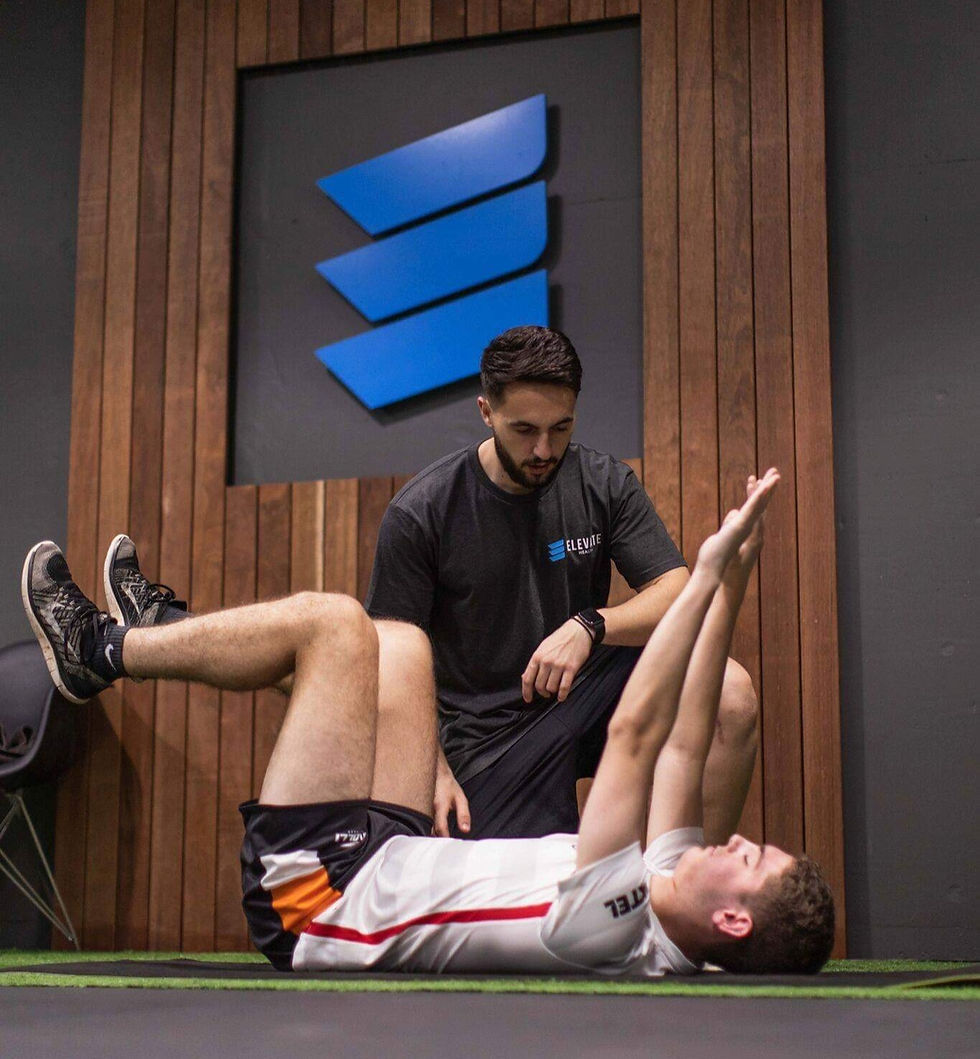Recover faster and prevent re-injury
Exercise Rehabilitation plays a pivotal part in rehab to all injuries and should be included in all recovery programs post injury. Firstly, you should receive an accurate diagnosis for your condition. From your diagnosis, an appropriate plan can be made to your rehab, which may need both hands on therapies such as; Physiotherapy, Chiropractic, Remedial Massage, etc, and work in conjunction to an individualised exercise program prescribed by your Exercise Physiologist.

A tailored exercise program has many benefits such as; reducing/ managing pain, increasing function of daily activities, improving strength & mobility and making our bodies resilient to future injury and overall allow you to treat and manage your injuries yourself.

Many times, in the past, the notion when we have been injured has been to rest. However, that is no longer the case, as evidence suggests normalising function, with the help of an exercise rehabilitation program, creates the best treatment outcome for individuals. One study suggested patients who are pain focused increased their likelihood of disability and reduced the possibility of a treatment outcome (Wertli et al., 2014). Another study suggested individuals who partook in an exercise program as part of their rehabilitation compared to minimal interventions increased their quality of life by over 15% (Macedo, Maher, Latimer & McAuley, 2009).

At Elevate Health Clinic, we value our patient’s health and wellbeing, and strive to provide the best treatment possible. As a result, we prescribe an exercise program to each patient that receives treatment. Our exercise programs are tailored to the individual to ensure it caters for your specific needs, suits your level of training experience and fits with your life, whether the program is to be completed at home or the gym.
If you need help with any injuries, issues or niggles with your training or life, book a session today with our Exercise Physiologist by calling 02 8883 0178.
References
Macedo, L., Maher, C., Latimer, J., & McAuley, J. (2009). Motor Control Exercise for Persistent, Nonspecific Low Back Pain: A Systematic Review. Physical Therapy, 89(1), 9-25. doi: 10.2522/ptj.20080103
Wertli, M., Burgstaller, J., Weiser, S., Steurer, J., Kofmehl, R., & Held, U. (2014). Influence of Catastrophizing on Treatment Outcome in Patients With Nonspecific Low Back Pain. Spine, 39(3), 263-273. doi: 10.1097/brs.0000000000000110
#exercisephysiology #elevatehealth #rehab #exercise #training #bellavista #norwest #sportsrehab #injuryrecovery #injuryprevention #recovery #injuryrecovery #sportsinjury


Comments